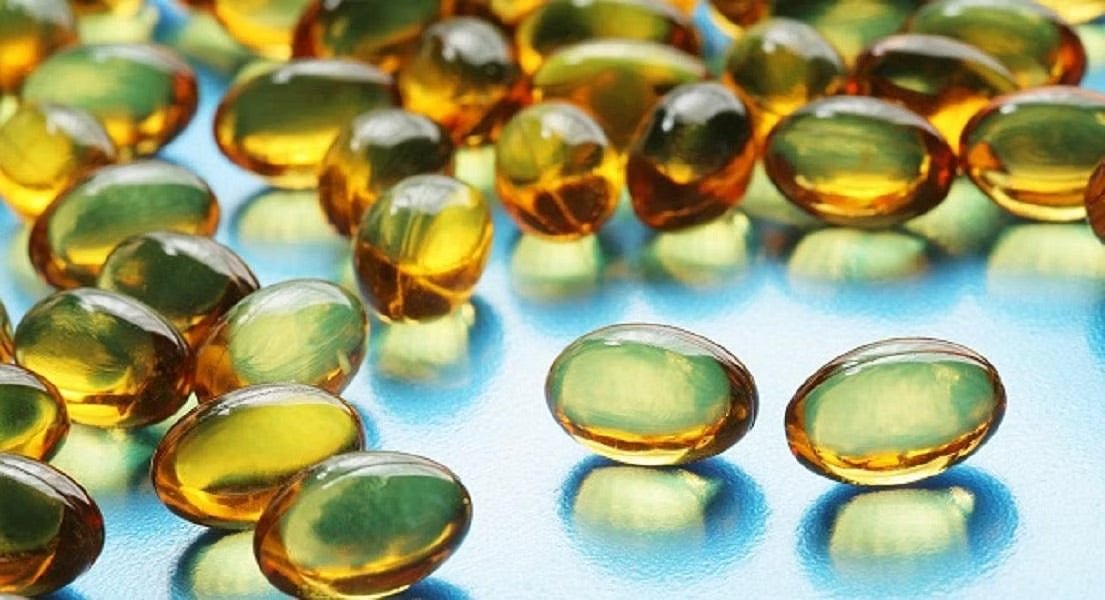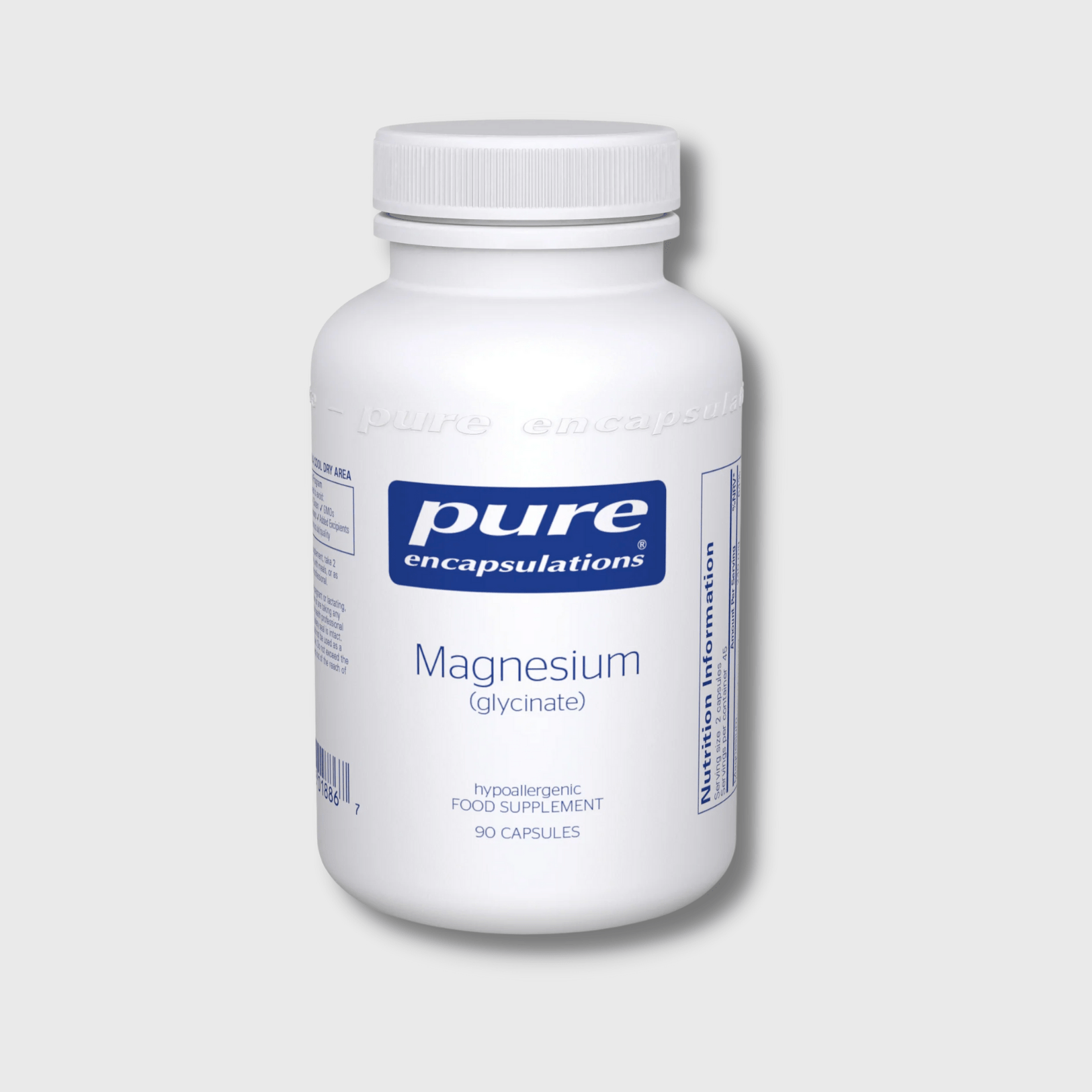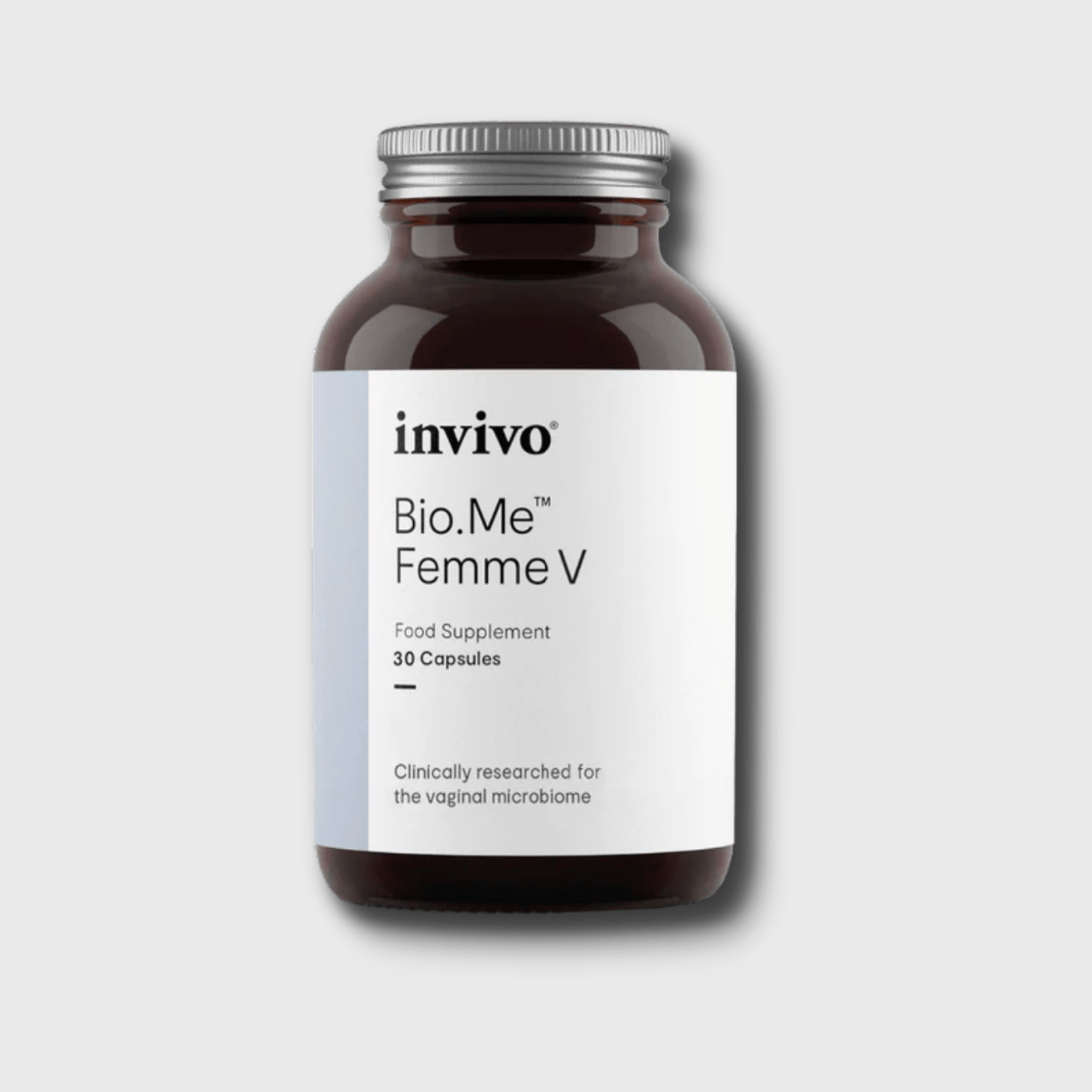News

Best Supplements For Fertility
There can be few topics more emotionally charged for couples and their families than that of conception and fertility, especially when pregnancy doesn’t happen just like that! According to government statistics, just under half of all pregnancies happen by accident, but with 1 in 7 couples having difficulty conceiving according to the NHS, actively trying for a baby can feel both exciting and daunting, and there is so much information and advice out there that it can often feel overwhelming.
In general, a couple is considered to have fertility issues if they have not got pregnant after one year (or longer) of unprotected sex. This is known as primary infertility. Secondary infertility refers to couples who have been able to get pregnant at least once, but now are unable to do so. Rates of both primary and secondary infertility have been on the rise in recent years meaning more and more couples are looking at ways to improve their chances of getting pregnant.
The reasons behind infertility are usually pretty complex, but one thing most experts will agree on is that getting your bodies into the best possible shape beforehand can only improve your chances of conception, and will likely reduce the chance of any potential pregnancy-related complications. Optimal nutrition sits right at the foundation of good health, and along with emotional health and lifestyle factors, is an important area to consider if you’re looking to support reproductive health for both you and your partner. “Healthy” diets favouring fish, poultry, whole grains, fruits and vegetables, have been consistently related to better fertility, higher live birth rates and better semen quality across a wide range of populations, whilst “unhealthy” diets have consistently had the opposite relation.1,2,3
Micronutrients we get from our diet have been shown to play important roles in many aspects of reproductive health, from menstruation and ovulation, to egg quality and maturation, as well as sperm quality, quantity and motility. The maturing egg, sperm, endometrium (womb lining) and foetus depend upon nutrients for their development, and so preparing the body for 3-4 months before trying to conceive is as important as ensuring good nutrition and health throughout pregnancy.
Whilst eating a healthy well-balanced wholefood diet rich in macro- and micro-nutrients is absolutely fundamental, many healthcare practitioners advise that women and men who are actively trying to conceive also take a nutritional supplement to improve their chances of having a baby.
So what are the best supplements for fertility?
Multivitamin
A multivit containing a broad range of vitamins and minerals in their most absorbable and body-ready forms, and in the recommended amounts for supporting reproductive health is one of the best supplements for fertility. Given what we know about the importance of micronutrients for the health of the maturing egg, sperm, endometrium and foetus, a multivitamin supplement is a sensible insurance policy to make sure you and your partner are getting good levels of the key micronutrients needed to optimize fertility.4
In addition, many other factors such as good energy levels, balanced mood, resistance to stress and overall feelings of well-being are important for any couple to feel the best they can whilst trying for a baby, all of which can be supported by the use of a multivitamin.
Omega-3 Fatty Acids
Omega-3 fats such as those found in oily fish are known to be essential to health in both adults and children, and must be provided by the diet as we cannot make them in the body. Numerous studies have shown that they also improve female fertility and enhance sperm quality.5,6,7 Getting them into your diet can be tricky however – even for those who love seafood – due to the level of contaminants found naturally in fish. One solution is to take an omega-3 supplement, which has been through a purification process to remove the contaminants, and provides potent levels of omega-3 and all of the benefits that go along with it, without the dangers to a growing baby.
Vitamin D
Some research has found that vitamin D deficiency could be associated with infertility in both men and women.8,9 Therefore it might be wise to test your vitamin D status, and if you have low levels, taking a supplement may be beneficial.
What are the best fertility supplements for women?
Whilst a specially-formulated broad-spectrum multivitamin and good quality omega-3s are considered the best fertility supplements for women, it’s worth also considering some individual nutrients that are thought to play a key role in conception and pregnancy.
Folate
Folate is a B vitamin that’s needed for healthy cell metabolism and the formation of new cells in the body. Also known as folic acid, folacin and vitamin B9, folate plays a crucial role in foetal development and due to its crucial role in cell division, is key for preventing certain birth defects. For women who are struggling to conceive, folate may help prevent early pregnancy defects that can lead to miscarriage.
The most effective form of folic acid to take is 5-MTHF (5-methyltetrahydrofolate) – this is a body ready form that the body can use immediately. For genetic reasons, some people lack enzymes to make the conversion into this activated form so other forms of folic acid may be completely ineffective. A good pregnancy multivitamin will contain optimal levels of 5-MTHF for conception and pregnancy.
Vitamin B12
Deficient levels of B12 may have a significant impact on women’s reproductive health.10 This deficiency may lead to anovulation (no release of an egg), disrupt normal cell division, impair egg development and result in difficulties during implantation. Fertility issues as a result of vitamin B12 deficiency can be easily corrected with B12 supplementation however. The active body-ready forms of vitamin B12 include methylcobalamin and adenosylcobalamin, so it’s important to look for these forms when choosing a supplement.
Myo-inositol
Myo-inositol, often considered to be a member of the B-complex group of vitamins, is a key factor involved in insulin signalling, and low levels have been observed in individuals with impaired insulin sensitivity and PCOS (Polycystic Ovary Syndrome), a common cause of infertility among women. A number of research studies have found supplemental myo-inositol to be an effective support in PCOS, in part due to its ability to improve insulin sensitivity, restore hormonal balance, improve menstrual regularity, reduce hyperandrogenism and influence ovarian function. Promising research has demonstrated fertility-improving effects of myo-inositol among women with PCOS.11
What are the best fertility supplements for men?
Fertility isn’t just a female issue. It may be the quality of the male’s sperm that’s at the root of the problem. Researchers estimate that about one in every 3 cases of infertility is due to fertility problems in the male partner alone.12,13 Whilst a broad-spectrum multivitamin and good quality omega-3s are amongst the best fertility supplements for men, it’s worth considering some of the individual nutrients that are thought to play a key role in sperm health and male fertility.
Selenium
Selenium is a key trace mineral and acts as a powerful antioxidant in the body. When it comes to fertility, this powerful nutrient is involved in various physiological processes, including sperm production, motility and overall sperm quality.14 Selenium is therefore considered to be one of the best fertility supplements for men, and a good men’s multivitamin will contain optimal levels of selenium for sperm health.
Zinc
Zinc, an essential trace element, is considered one of the cornerstones of male reproductive health, and is necessary for healthy testosterone levels and sperm production. Zinc deficiency may be an important risk factor for lowered semen quality and reduced chances of fertilization. Observational studies show that low zinc status or deficiency is associated with low testosterone levels, poor sperm quality, and an increased risk of male infertility.15 Meanwhile supplementation has been shown to increase testosterone levels and sperm count in those who are low in zinc16, and alongside selenium it is considered one of the best fertility supplements for men.
Blog provided by Nutri Advanced.

The Truth About Sugar, Salt & Caffeine Cravings
The idea that we crave the foods we need is somewhat outdated now - it’s highly unlikely that the 9am caffeine fix, 3pm Mars Bar habit or the 7pm crisps ritual are actually what your body needs!
Whilst it might not be a bar of chocolate and a bag of crisps that your body is actually after, it is important to listen to your cravings though, as they are probably trying to tell you something…
Here we unravel 3 of the most common cravings (sugar, salt & caffeine) & give you our nutritional take on what your body might really be looking for…
1. Sugar (& refined carb) cravingsSweets, cakes, chocolate, sugary drinks, white bread, pasta…
Food scientists have found that the brain finds rapid absorption of sugar (glucose) and the equally fast reduction in hunger more rewarding than slow release sugars. The brain associates these foods with pleasure, and every time you eat them, a very potent food memory is formed. Hence why, the more you eat sugar, the more your brain will want to eat.
In addition, when you eat refined sugars the body responds quickly with a surge of the hormone insulin. This crucial hormone not only brings your blood sugar levels back down into a safe range, but has a complex relationship with serotonin (the happy neurotransmitter) too. Eating refined sugary foods and drinks can give you a mood boost and make you feel good.
In theory, this might sound like a good thing, however these effects are short-lived and the mood-boosting high is quickly followed by a dramatic low, as sugar levels come crashing back down again. The natural reaction at this point is to reach for more sugar and so the vicious cycle of overeating continues.
Sugar fix - What are you really craving?If you are constantly craving sugar perhaps what you’re actually looking for is a mood boost and a bit of extra energy. It’s also likely that your blood sugar balancing systems need a bit of extra support. Sugary foods such as chocolate and cakes are often labelled ‘comfort foods’ and that gives another clue as to what a sugar craving could be about. Perhaps what you actually need is a bit of extra comfort and support.
Alternative ways to deal with sugar cravings • 5-HTP (5-hydroxytryptophan) is a natural precursor to serotonin. You can take 5-HTP in supplement form to gently balance your levels of this happy neurotransmitter. • Chromium is an essential mineral that helps to support blood sugar balance, and may help to reduce sugar cravings. Chromium is part of glucose tolerance factor (GTF), which helps to support the action of insulin at the cellular level. Chromium levels are often low in a typical Western diet; you can take extra chromium in the supplement form of chromium picolinate. • Lifestyle – Inject a bit more fun and pleasure into your day. Take time out to do something you really love. And get regular exercise – it’s the best natural mood booster around. If you’re looking for comfort, invest more time in close relationships with family and friends. You will get more support from these (like a hug or a chat) than a bar of chocolate.
2. Salt cravingsSavoury snacks such as crisps, salted popcorn, nachos, French fries...
For most people, a craving for salty foods doesn’t usually mean you are lacking sodium in your diet (although it’s always worth checking with your GP first). The high levels of salt in a typical Western diet mean that most people are getting more than enough sodium. Salt cravings may however be a sign of stress overload and an indication that your adrenals are starting to struggle under the load.
Salt fix – What are you really craving?If you are regularly craving salty snacks and you’ve been under a lot of stress, burning the candle at both ends, it’s possible that what you actually need is to give your adrenal glands a bit of a break and add some calming, stress-busting strategies into your day.
Alternative ways to deal with salt cravings
• Magnesium – This essential mineral is typically lacking in Western diets and yet is absolutely crucial for helping you to deal with stress. Often nicknamed ‘nature’s tranquiliser’, magnesium has a gentle calming effect, yet also works to support the adrenal glands and energy production systems too. Magnesium is needed in higher amounts during stress, so this mineral is the first port of call when you know you’ve taken on too much, and are starting to struggle under the load. Magnesium is best supplemented in the powdered form of magnesium glycinate as this is highly bioavailable and well tolerated in higher quantities by most. • B Complex – These water-soluble vitamins are essential for energy production, to support the nervous system and a healthy stress response too. • Vitamin C – Used up rapidly during periods of stress, this crucial nutrient is a useful addition to your day in the form of mineral ascoarbates if you are suffering from stress. • L-Theanine - An amino acid found naturally in tea, which has been shown to have a soothing and calming effect. Unfortunately tea also contains caffeine, which can have the opposite effect. You can take L-theanine in supplement form to experience its gentle benefits in isolation. • Lifestyle – Probably the most crucial aspect of dealing with stress is to look at ways you can reduce your daily stress load, alongside building in practical daily stress-reduction strategies. Gentle exercises, such as walking, yoga, t’ai chi and swimming are highly effective, as well as relaxing strategies such as mindfulness meditation.
3. Caffeine cravingsTea, coffee, energy drinks, chocolate…
Caffeine is a stimulant that will give you a temporary boost in energy. This energy high is often followed by a sudden dip though, leaving you in need of another caffeine fix to pick you up again. If you need caffeine to get you going in the morning and at regular points during the day it could be that your energy levels are less than optimal. This may be due to poor sleep quality and / or a hectic daily schedule.
Caffeine fix – What are you really craving?If you are regularly craving caffeine, you could actually be looking for a bit of extra energy. It’s time then to focus on getting better sleep and nourishing your body with plenty of nutrients for efficient and balanced energy production throughout the day.
Alternative ways to deal with caffeine cravings • Co-Q-10 – A vitamin-like nutrient, which is a vital component of the electron transport chain, which generates energy in the mitochondria. Choose an oil-based formula to enhance absorption and bioavailability. Best supplemented with vitamin E, as this may help to support the activity of Co-Q-10. • Magnesium – A crucial mineral for energy production; choose powdered magnesium in the form of magnesium glycinate. • B complex vitamins – This range of water-soluble vitamins play an important role in energy production and need to be replenished frequently through the diet. • Glycine - This little referred to, naturally occurring, non-essential amino acid has an important role in the sleep cycle. It has been found to be particularly useful for those prone to waking in the middle of the night and may help to support restful sleep; an important aspect of general feelings of calm and wellbeing. • Diet & Lifestyle – Eat regularly (every 2-3 hrs). Choose complex, wholegrain, fresh foods made from scratch. Pair carbohydrate foods (fruits, vegetables, wholegrains) with high quality protein (lean meat, chicken, fish, pulses, beans, legumes) and fats (nuts, seeds and their oils, avocado, oily fish). Swap caffeine-containing drinks for energising herbal teas such as peppermint and calming chamomile. To nurture better sleep habits read our expert nutritionist & psychologist tips here.
Summary:Cravings can be a complex interaction between physiological and emotional needs. Sometimes a craving will indicate that you need to inject a bit more pleasure into your life, or perhaps nurture your support systems. Other times, a craving might mean that you need to fuel your adrenal glands or energy production systems with optimal nutrition, or simply just get more sleep. For every craving, there is a unique interpretation that is individual to you; what’s most important though is that you don’t just reach for the easy quick fix; this is a bit like a sticking plaster and over time, could catch up with you. You need to get underneath the surface of your cravings to find out what your body is actually looking for and instead, provide it with that. At first this can be a challenge; stick with it for a few weeks however, and you will soon notice widespread benefits to your physical and mental wellbeing.
Cravings in a nutshell
Blog provided by Nutri Advanced

Awareness around the importance of getting plenty of good fats into the diet has grown dramatically in the last decade or so. Once unheard of, the term omega-3s is now a household name. And it’s no surprise why; low levels of omega-3 are associated with many aspects of ill health from poor cognitive function in kids and older adults, to low mood, cardiovascular health problems, poor skin and more.
Many people take extra care to look after their health during the winter months, when cold and flu bugs proliferate, yet there’s still plenty of reasons to keep up a healthy routine during the milder seasons too. And for nutrients such as omega 3s there’s even more reason to keep this routine up throughout the year.
Omega 3 - Supplement regularly for best effectsIt is recommended that we all consume 2 portions of oily fish per week, but it is thought that most of us in the UK don't meet this recommendation and therefore supplementation is an incredibly useful way of ensuring optimal omega-3 intake. Research shows that once you start supplementing with omega 3s it can take up to 18 weeks for levels of Eicosapentaenoic Acid (EPA) and Docosahexaenoic Acid (DHA) to reach a peak accumulation, and supplementation needs to be maintained to sustain beneficial effects1,2.
So what areas can benefit from all year round omega 3 supplementation?
✓ Stress✓ Mental health✓ Mood✓ Reproductive health✓ Pregnancy & breastfeeding✓ Infant development✓ Hair, skin & nail health✓ Joint health✓ Cognitive function✓ Memory✓ Learning & behaviour in children✓ Blood sugar balance✓ Cardiovascular health✓ Balanced inflammation
Which Form Should I Choose?Omega 3 supplements are suitable for all ages but often come in different forms so it’s important that you choose the one that is best suited to your needs.
• Children 1-12 years – Children’s fatty acid needs are different from adults so a combination of omega 3, 6 & 9 fatty acids with added vitamin D is best suited to this age group • Age 12 upwards – A pure omega 3 fish oil supplement containing Eicosapentaenoic Acid (EPA) & Docosahexaenoic Acid (DHA) is ideal for daily maintenance of omega 3 fatty acids. • Age 12 upwards with low mood – Research shows that EPA may be more important than DHA for low mood so an omega 3 fish oil supplement with a higher ratio of EPA: DHA (6:1) is best suited to this group3-8. • Students, adults & older adults wanting to maximise cognitive function – A combination of omega 3, 6 & 9 fatty acids with added vitamin D & CoQ10 will best suit the needs of this group.
Omega 3 - Every DayConsidering the role of fish oil supplements in ensuring adequate daily omega 3 fatty acid intake, their high level of safety, the benefits for patients at risk of chronic disease and ability to promote optimal reproductive and general health, the regular use of fish oil supplements should be encouraged as part of a healthy lifestyle.
“What you do every day matters more than what you do every once in a while”You’ll get most benefit from omega 3 supplementation if you do it daily so take the advice of Happiness guru Gretchen Rubin9 and make a commitment to stick to your new healthy habits. As you’ll see from the many potential benefits, the investment is in your long-term health – one simple daily action can lead to a lifetime of multiple benefits.
Blog provided by Nutri Advanced.





